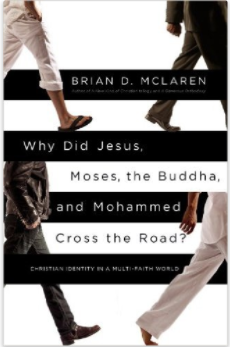 This is a good book for those who still believe the Gospel is just abut getting me to heaven.
This is a good book for those who still believe the Gospel is just abut getting me to heaven.
Based on a rather imaginative elaboration of Paul’ statement in 1.Cor. 15, Scott McKnight argues that the Gospel is in fact God’s story with Israel, culminating in the story of Jesus, who fulfilled his plan. The story goes back to the creation and man’s God-given mandate to rule the world for God the King. At various stages, Adam, Abraham, Moses, David and the prophets failed to accomplish this task. We all end up as usurpers.
The final point of this Gospel is the promise of new creation as previewed by Jesus’ resurrection. We, his followers, empowered by the Holy Spirit, are now called to practise this gospel culture, which means fostering the kingship of Jesus.
The message is valid. God wants us to see the full scope of His love for the world and live accordingly, and not just concentrate on launching souls into heaven. But I didn’t really like the style. Unnecessary repetition, convoluted argument and – for a study on the meaning of a word like Gospel – too much sloppy and sensational formulation for the sake of sounding cool.
(Read with Kindle)






